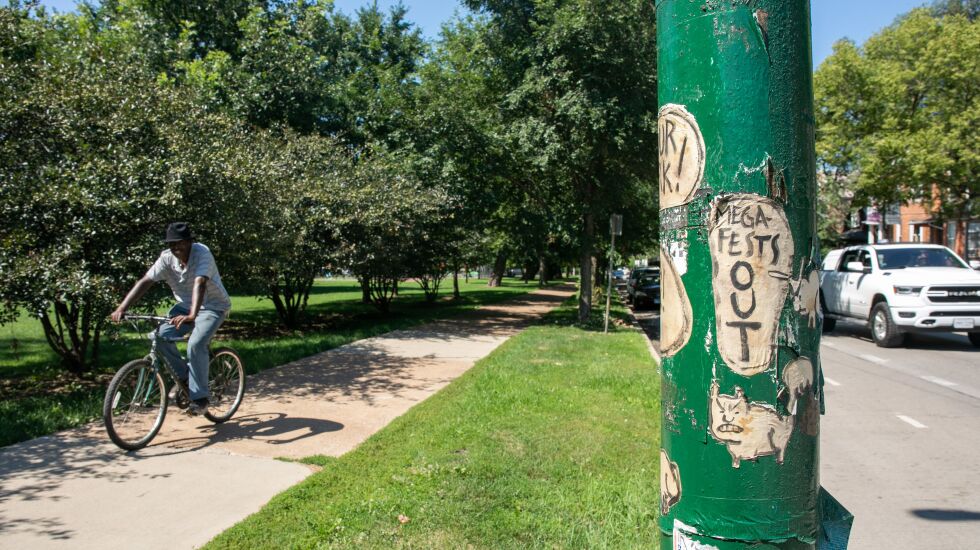
Community organizers are asking music artists to pull out of performing at Riot Fest next month as they continue to push for the three-day festival to leave Douglass Park.
Some residents of Little Village and Lawndale want Riot Fest and other similar music festivals to stop using the West Side park, during which residents are unable to access the park for extended periods in the summer.
Karina Solano, a community organizer with Únete La Villita, estimates that residents lose access to the park for over 40 days during the summer because of the festivals, including days when organizers are setting up and taking down equipment. The group’s online petition had generated more than 1,300 signatures as of Wednesday.
“Although they are required to fix some of the damages that they cause in the park, it doesn’t happen immediately right after the festival ends,” Solano said. “So that effects some of the sports leagues that play in Douglass Park.”
Tensions between residents and festival organizers increased during a heated community meeting last week. The Chicago Reader reported on the meeting and published an audio recording of the meeting, during which a man who said he represents Riot Fest offended residents by stating they needed to understand “pure English” as he fielded questions.
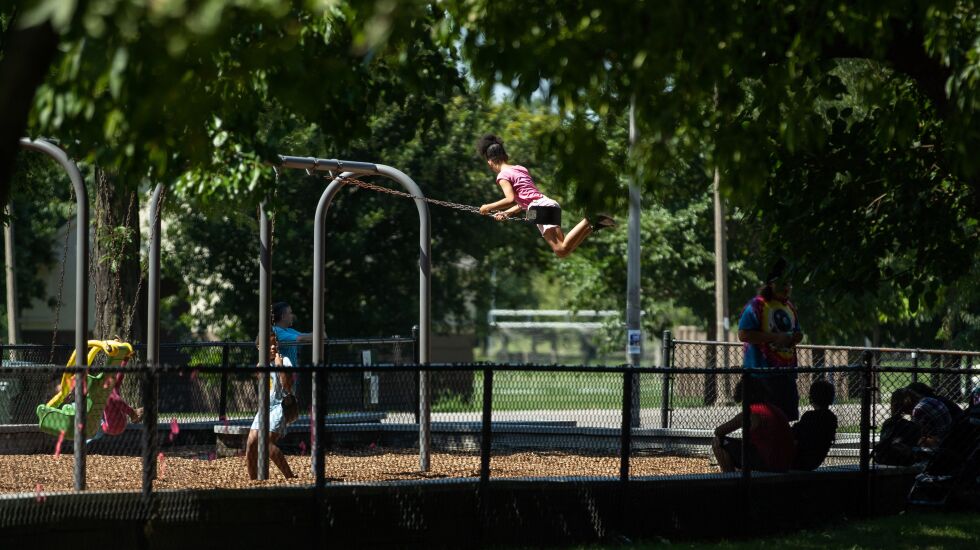
In a statement, Riot Fest said the meeting was not authorized by the the festival’s management and that the contractor who led the meeting has since resigned. Riot Fest said it doesn’t “condone the tone” of the meeting and apologized to the community.
Organizers of the festival, which is set to take place Sept. 16-18, said they plan to hold a meeting with residents in the coming weeks but have not specified a date. Riot Fest said it planned to have an interpreter at the meeting.
“We understand the concerns from residents and want to do everything to mitigate those concerns and remain a positive asset to the community. We have been in Douglass Park since 2015, and we consider it our home,” Riot Fest said in a statement.
Mount Sinai Hospital, which is located next to Douglass Park, said it does not have any concerns with events at the park.
The hospital, where many gunshot victims are taken for medical attention, said it usually notifies its internal staff about festival weeks ahead of time to give workers more time to commute.
On a recent afternoon, children played at one of the park’s jungle gyms, while others walked around the park and a man sunbathed on one of the fields typically used by the festivals.
Jaquan Tolbert, 17, of Lawndale, hung out at Douglass Park with friends while waiting for football practice to start. He recalled how he sometimes hears music from the festivals during summer practices.
“It’s a little distracting, but I like listening to it,” he said.
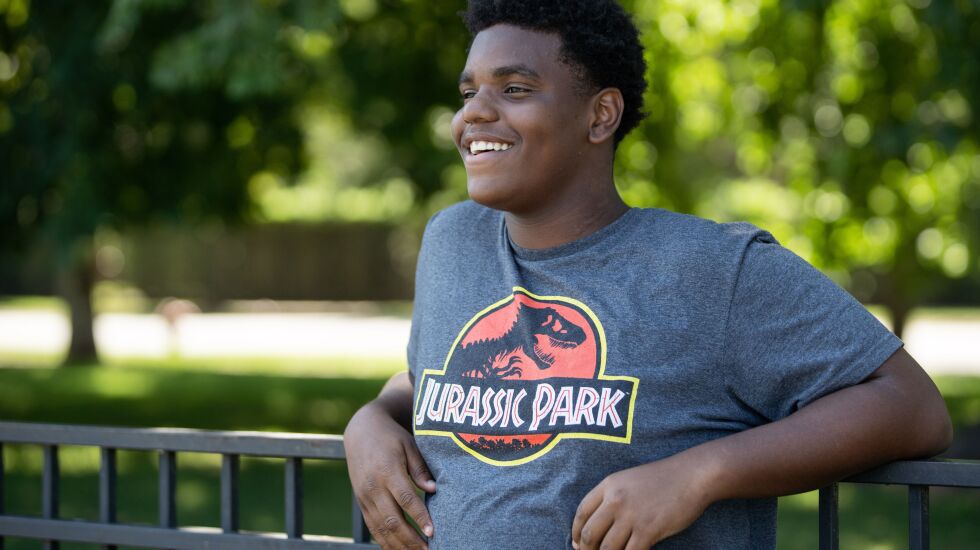
He recently attended one of the festivals with his grandmother after she got free tickets. Tolbert said he liked it, and he likes having something to do in the summer.
“We meet new people,” Tolbert said. “You see people come from everywhere.”
But others agree with the community groups. Anton Adkins, who lives near the park, said the festivals have become a nuisance for the neighborhood, with attendees sitting on porches while waiting for rides, vomiting in private yards and the noisy 12-hour days.
And while some of the festivals don’t fence up all of the park space, the area is so crowded with people that the open areas still can’t be fully accessed, said Adkins, 29.
“City officials are innovative enough that they could find a central location for all the music festivals,” Adkins said.
Stevie Brown, 62, of Lawndale, likes riding his bike around the park. He said the festivals stop him from being able to ride inside the park.
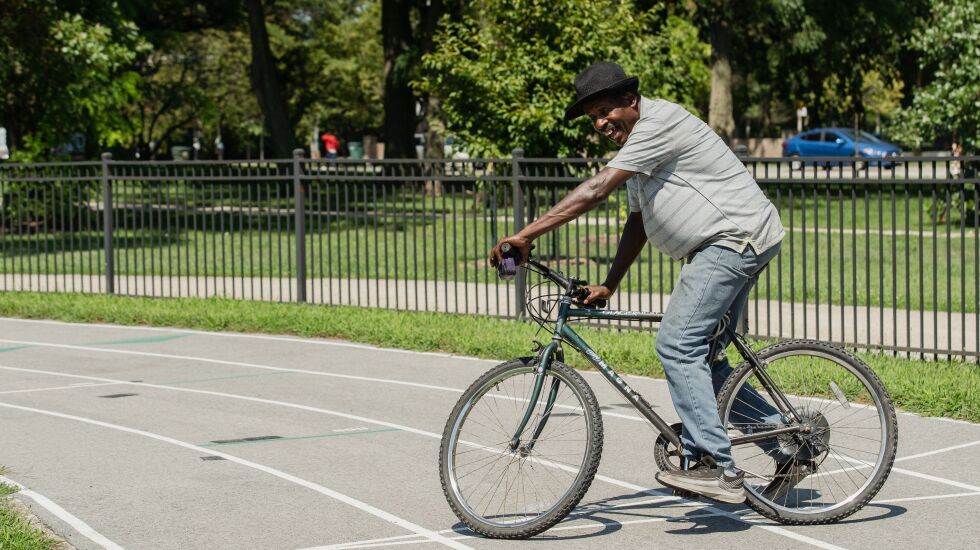
Danny, who did not want his full name published, pointed out problems around the park, including non-working water fountains, patchwork repairs on the roof of a building and the lack of a dog park.
“We can see the money is not funneling to where it should be,” he said, adding that local vendors should be allowed to sell inside the festivals and profits should be used to pay for infrastructure improvements.
Danny, who was walking his dog, Lobo, in Douglass Park, said the park is a pivotal place for the community because it’s where the Black and Brown communities in the area intersect.
Solano, of Únete La Villita, said groups also worry the festivals could lead to gentrification in the area. Around the park, there are signs of newly remodeled buildings.
“It’s just incredibly frustrating that there’s no community input for these mega festivals, and the people that are benefiting are not the most vulnerable people in our community,” Solano said. “So it’s really wrong.”
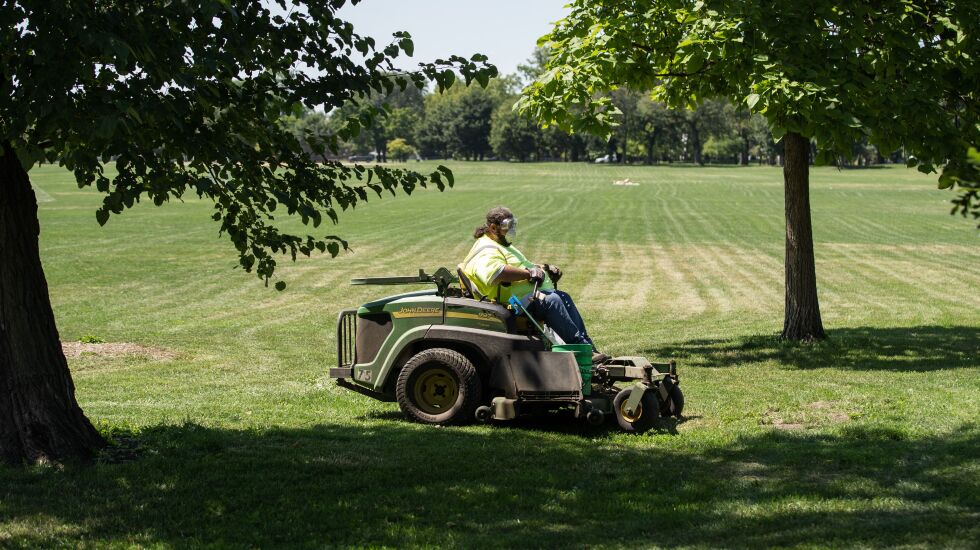
Elvia Malagón’s reporting on social justice and income inequality is made possible by a grant from The Chicago Community Trust







